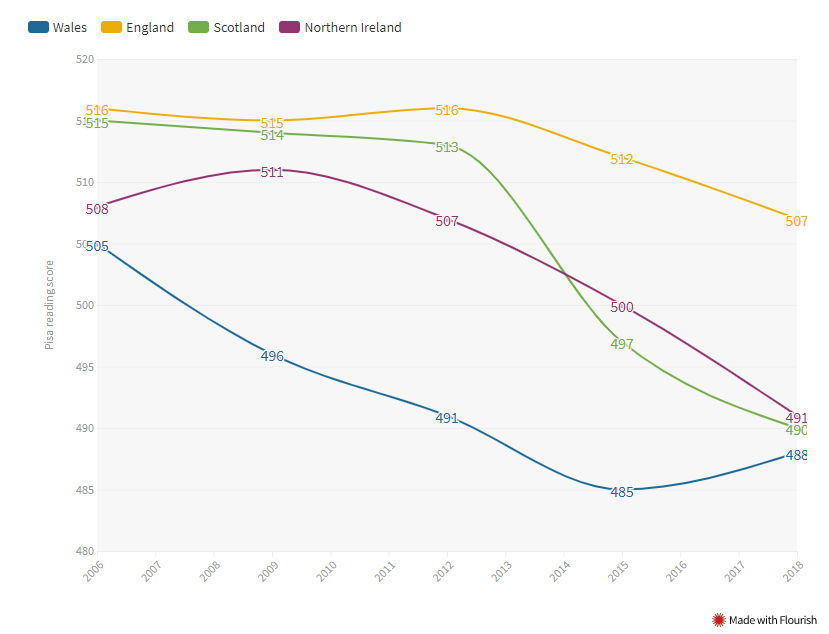
Gerallt Hughes, Trials Co-ordinator at AlphaPlus, shares some insight into STEM and STEM education in North Wales.
Having recently done some extensive research into STEM (Science, Technology, Engineering, Mathematics) in North Wales, I had an opportunity to reflect on aspects of my background and experiences living and growing up in the region. Despite not being an expert on STEM, it was interesting to reflect on the importance of STEM in North Wales, and how this is reflected in the Welsh Government’s “STEM Gogledd” programme.
The STEM Gogledd initiative is an interesting development in the field. It is one of several initiatives into the STEM area – other programmes include the Institute of Physics Lab in a Lorry initiative. The Education Endowment Foundation also funds development projects and evaluation in STEM. More details on these are found at the end of this blog.
North Wales
North Wales is defined by the six local authority areas of the Isle of Anglesey (Ynys Môn), Gwynedd, Conwy, Denbighshire (Sir Dinbych), Fflintshire (Sir Fflint) and Wrexham (Wrecsam). It is split east-west, with Wrexham and Flintshire falling into East Wales, with strong links to Cheshire and Chester, and the other four counties falling into North West Wales. This split identifies the comparative prosperity of the constituent parts of the region, with North East Wales performing a little better economically than North West Wales. At the time of writing, North West Wales had access to funding from the EU regional development fund.
The region has a unique cultural identity and environmental heritage, providing a strong sense of community. Nevertheless, the region faces several economic challenges:
- Economic uncertainty and austerity have contributed to a stagnation in the growth of the wider region.
- An over-dependence on the public sector, creating an unbalanced economy.
- The need for larger firms or corporations to invest to boost employment opportunities, productivity and earnings.
- The emigration of younger people. There has been a trend of a high proportion of younger qualified people moving away from the region to cities like Manchester, Liverpool or Cardiff looking for work.
The importance of the Welsh language
North Wales is the region with the largest proportion of Welsh speakers. Broadly, the further West you go in North Wales the more Welsh speakers you encounter. The Welsh Government has a target of 1,000,000 speakers by 2050. In the year ending 2019, 874,700 people in total speak Welsh (up from 726,600 in 2008) and the number is growing. There is an opportunity to further develop this trend in line with a new innovative job market.
STEM and North Wales
North Wales has many STEM providers with a strong history of providing effective regional links between employers and education providers. The network is varied and formidable, giving ample opportunity to develop career paths for young people and empower and cultivate young innovative entrepreneurs. Providers include Alwen in North Wales (Welsh Water), First Hydro Company (Snowdonia), Anglesey Sea Zoo and Marine Resource Centre, Bright Sparks, Wrexham, Denbighshire 14-19 Partnership, National Slate Museum (Llanberis, Gwynedd) – these are merely a few examples. Young entrepreneurs carving a career path in STEM ensure that the Welsh language is associated with contemporary, technological advances. With the prospect of an exciting career path young Welsh language speakers are encouraged to stay in the area; they are often proud of their unique cultural roots and have a strong affiliation with the Welsh language community in the region. Offering them a good career path in the area would likely boost their interest in helping build something extraordinary, as well as strengthen the growth of the Welsh language.
STEM Education in Wales
In the most recent PISA study, Wales received a score of 488, the lowest of the four nations and below the average of developed nations (known as the OECD average) of 489[1]. However, there is no statistically significant difference between Wales’ science score and those of Scotland and Northern Ireland[2] (490 and 491 respectively).

In 2018, the Welsh Government skills minister stated that Wales is “struggling” to get pupils, especially girls, to study STEM subjects[3], an issue that is reflected across the four nations. By 2024, one in five new jobs is expected to be in STEM[4], and estimates show that there is an annual shortfall of 40,000 STEM workers in the UK.
Importance of STEM
STEM education plays a crucial role in two key initiatives that the Welsh Government had put forward.
In its most recent form, the Curriculum for Wales legislation proposes that learning should serve four purposes, namely, “to enable learners to develop as:
- ambitious, capable learners, ready to learn throughout their lives
- enterprising, creative contributors, ready to play a full part in life and work
- ethical, informed citizens of Wales and the world
- healthy, confident individuals, ready to lead fulfilling lives as valued members of society.” [5]
This builds on earlier work that has long celebrated the diversity of Welsh society yet acknowledges that learners share the common experience of living and learning in Wales.
The Well-being of Future Generations Act 2015[6] is about improving the social, economic, environmental and cultural well-being of Wales. The Act puts in place seven well-being goals for Wales that promote a more equal, prosperous, resilient, healthier and globally responsible Wales, with cohesive communities, a vibrant culture and thriving Welsh language.
STEM initiatives
Having worked the Welsh national literacy and numeracy on-screen assessments, I have personally witnessed the focus and effort Welsh Government has put into improving education throughout the country.
In terms of STEM, the Welsh Government’s STEM Gogledd programme has been set up to “inspire and encourage” pupils aged 11-19 in North Wales to consider the importance of STEM subjects to their future careers[7]. The programme is partially funded by the European Social Fund through the Welsh Government.
The ‘STEM Gogledd’ website has excellent resources for learners. It is a comprehensive platform with regular updates and opportunities, it allows users to create accounts, where they are notified about courses, mentorships, workshops and potential future careers. Having this volume and variety of opportunities encourages motivation for the participants, helping them picture a bright future in the field. Examples of STEM resources include:
- Six-week STEM clubs, run by professionals, repeating every half-term with a different set of students each time.
- Learners helping mentors facilitate STEM groups.
- STEM Ambassador who inspire young students, motivating them to pursue a career.
- STEM challenges and competitions
- Webinars with professionals such as university lecturers
Having gone to school and grown up in the area (specifically Conwy), opportunities like this were rare, it’s encouraging to see how much investment is being put into educating young people, giving them relevant work experience and support in how to enter the job market.
Conclusion
There is a rich history of STEM activity in North Wales; nevertheless, the region still faces many challenges and the need to co-ordinate provision across Conwy, Gwynedd and Anglesey has never been more important. This forms part of a large complex puzzle, which needs to carefully amalgamate pieces from different areas of policy including education, skills, the labour market, Welsh language, Curriculum for Wales, and the Well-being of Future Generations Act. AlphaPlus has a good understanding of the nuanced context within which this project sits and would be well aligned to provide evaluation services.
AlphaPlus’ work in STEM and in Wales
AlphaPlus understands the Welsh education system within which this evaluation is situated. We lead a consortium developing the Welsh national literacy and numeracy on-screen assessments. To date this has involved over 80,000 learners across hundreds of schools in Wales.
Our recent work in STEM includes:
- Institute of Physics – AlphaPlus worked for the Institute of Physics to evaluate the Stimulating Physics Network (SPN) and Lab in a Lorry (LIAL) interventions; the latter in Wales. We also evaluated the Institute of Physics Whole School Equality Project, which aimed to increase female participation in physics post 16.
- Evaluation of the Deeper Thinking Science intervention – We evaluated the Carmel Education Trust’s SOLO Taxonomy and Deeper Thinking intervention on behalf of the Education Endowment Foundation. This intervention aimed to improve their performance in GCSE science in two types of GCSE question: required practical exams, and the extended answer question.
This article is also available in Welsh. (Mae’r erthygl yma ar gael yn y Gymraeg hefyd.)
[1] https://www.walesonline.co.uk/news/education/pisa-wales-international-schools-2019-17346247
[2] https://seneddresearch.blog/2019/12/04/how-did-wales-perform-in-pisa-2018/
[3] https://www.walesonline.co.uk/news/education/wales-struggling-pupils-study-science-14524976
[4] https://businessnewswales.com/what-is-being-done-to-recruit-and-retain-more-women-in-stem/
[5] https://hwb.gov.wales/curriculum-for-wales/designing-your-curriculum/developing-a-vision-for-curriculum-design/#curriculum-design-and-the-four-purposes
[6] https://www.futuregenerations.wales/about-us/future-generations-act/
[7] https://www.gwynedd.llyw.cymru/en/Council/News/Press-releases/November-2019/STEM-Gogledd-Project-launch.aspx#:~:text=STEM%20Gogledd%20is%20a%20project,Technology%2C%20Engineering%20and%20Mathematics).
 AlphaPlus
AlphaPlus